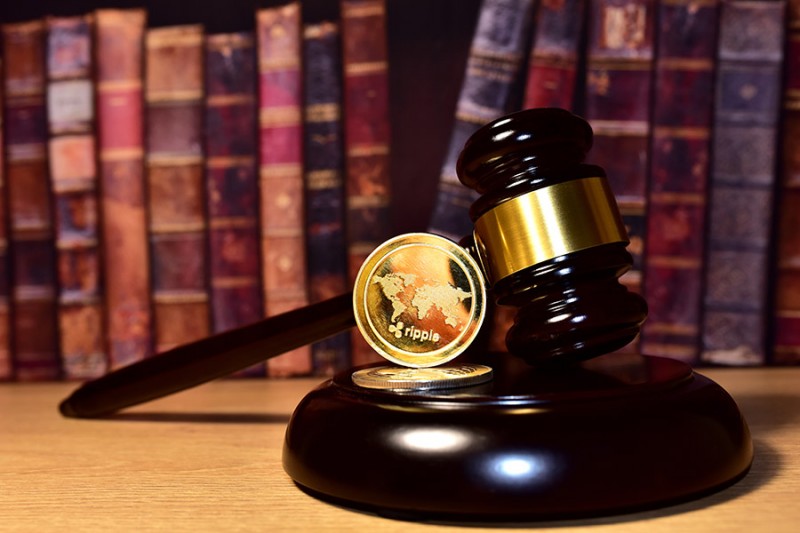
The US Securities and Exchange Commission (SEC) is seeking to appeal a recent court ruling that favored Ripple Labs, a move that highlights the agency's commitment to overseeing the rapidly evolving cryptocurrency market. The decision, handed down by US District Judge Analisa Torres on July 13, found that the sale of Ripple's XRP digital token on public exchanges did not violate federal securities laws. The SEC's decision to appeal stems from concerns about the implications of the ruling on its ability to enforce securities regulations within the cryptocurrency space.
SEC's Appeal Request: In a letter submitted on Wednesday, the SEC formally requested US District Judge Analisa Torres to permit a federal appeals court to review her ruling in the Ripple case. The agency expressed that there were "substantial grounds for differences of opinion" on various legal matters within the case, warranting a higher-level review. The SEC emphasized that the outcome of the appeal holds significant consequences for its authority to regulate securities laws concerning digital assets and could potentially impact numerous other lawsuits in the future.
Background of the Ripple Case: The SEC filed a lawsuit against Ripple Labs, its CEO Brad Garlinghouse, and co-founder and Chairman Chris Larsen in December 2020. The lawsuit alleged that Ripple illegally raised over $1.3 billion through an unregistered securities offering by selling its XRP token. The agency's argument rested on its longstanding assertion that digital assets, including cryptocurrencies like XRP, should be classified as securities and thus fall under its regulatory jurisdiction.
District Judge Torres' Ruling: Judge Analisa Torres' decision in July was seen as a partial victory for Ripple. She ruled that the sale of XRP on public exchanges did not violate securities laws, as purchasers did not have a reasonable expectation of profit based on Ripple's efforts. However, she also found that Ripple had violated securities laws by selling XRP to institutional investors. The judge's mixed ruling created uncertainty in the legal landscape surrounding digital asset regulations.
Legal Precedent and Implications: Interestingly, just eighteen days after Judge Torres' ruling, US District Judge Jed Rakoff, from the same court, reached an opposing verdict in a separate case involving Terraform Labs. Judge Rakoff deemed the Terra USD token offered by Terraform Labs as a security when sold on public exchanges. This discrepancy in rulings underlines the complexity and evolving nature of cryptocurrency regulations.
SEC's Motivation for Appeal: The SEC's decision to appeal the Ripple ruling is rooted in its goal of maintaining regulatory clarity and consistency within the cryptocurrency market. The agency seeks to address the perceived contradictions arising from different judicial interpretations of securities laws applied to digital assets. The appeal also aligns with SEC Chairman Gary Gensler's efforts to curb speculative excesses in the cryptocurrency sector and uphold investor trust in US capital markets.
The SEC's plan to appeal the Ripple case highlights the agency's determination to establish a clear regulatory framework for cryptocurrencies. The divergent rulings in the Ripple and Terraform cases underscore the challenges of applying traditional securities laws to the rapidly evolving digital asset landscape. The outcome of the appeal will have far-reaching implications not only for Ripple but also for the broader cryptocurrency industry and the regulatory authority of the SEC. As the appeal progresses, it will be closely watched by market participants, legal experts, and stakeholders eager to see how the legal landscape for digital assets continues to evolve.
Eurozone's Second Quarter Growth at 0.2%, Aligns with Predictions Amid Looming Recession Concerns
China's Economic Growth Slows to 6.3% in Q2 2023, Sparking Concerns Amidst Multiple Challenges
Oil Prices Strengthen as Optimistic Demand Growth Projections Emerge